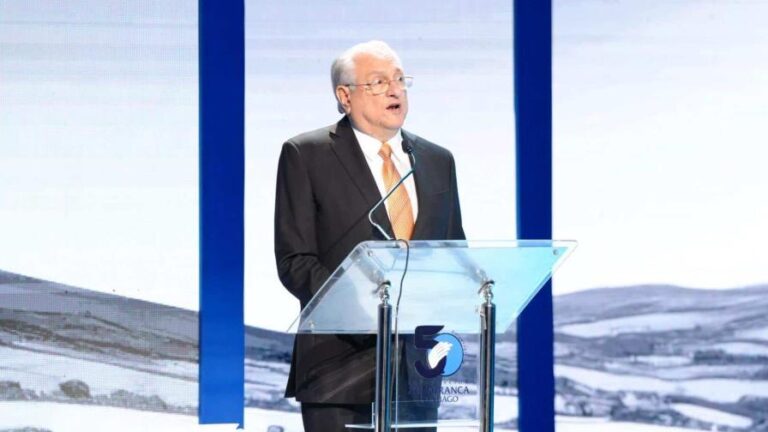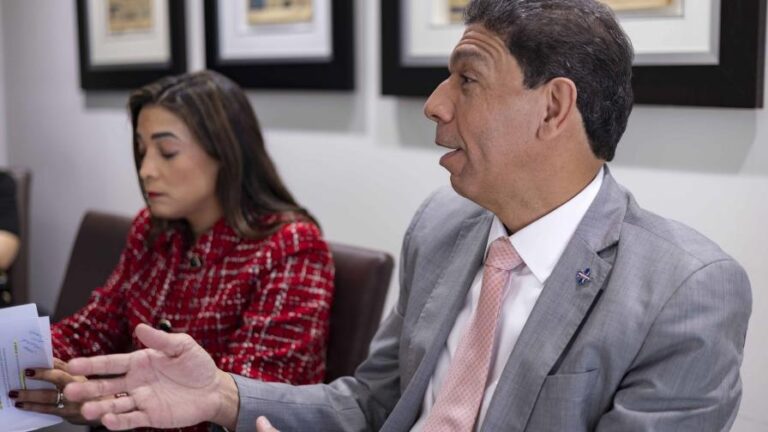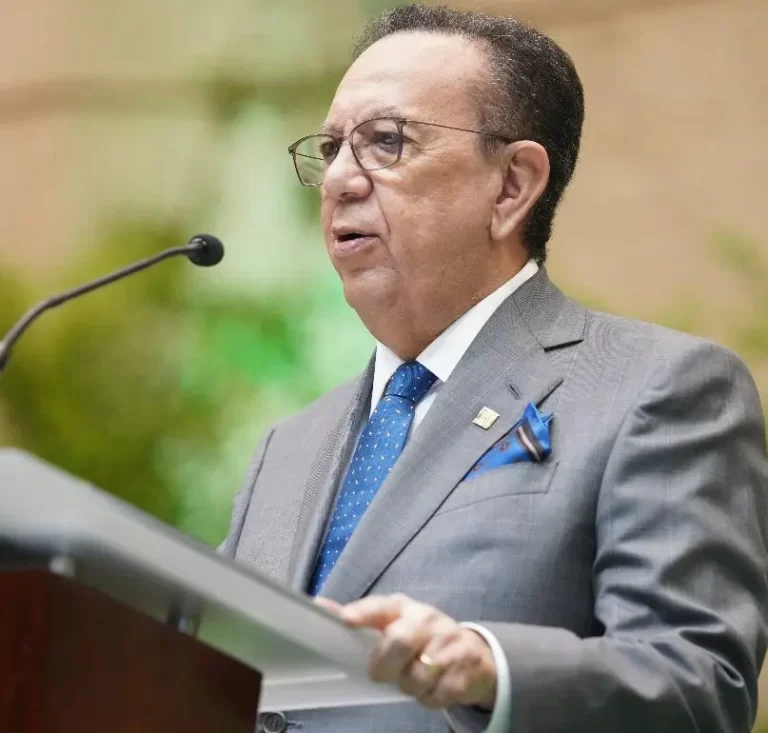Interview with Bernardo Vega
The Dominican Republic’s bilateral relations with the United States have gone hand in hand with Dominican history and, despite the military interventions in the years 1916-1924 and 1965, they are solid with many fields where they can be strengthened.
When citing the areas that would lead to stronger bilateral relations between the countries, former ambassadors to the United States Bernardo Vega and Flavio Darío Espinal agree that trade, foreign investment, tourism, and remittances are among them.
Interviewed separately about what bilateral relations could look like five years from now, the former diplomats point out that another great opportunity for the country is nearshoring, given that American investments in China are moving to countries closer to the United States.
Vega and Espinal also believe that the production capacity for export to the United States must be increasingly technified so that new products are incorporated into the export chain. They emphasize that progress has been made by incorporating new products such as medical devices and electronic products because footwear and textiles no longer predominate the market. However, they believe it is possible to go further by leaning towards high technology.
Areas of opportunity
Vega is very clear that the Dominican economy is becoming more and more of a service economy. Therefore, he indicates that the bilateral agenda will focus more on the area of services, tourism, and remittances.
Vega also believes that the country can become a financial and high-tech center. And, after the pandemic and with remote work, Americans could be encouraged to come and work from a beach in the Caribbean.
Open Skies is another issue he says will be important. “That goes back to ’97. I remember when I was ambassador, the Americans proposed an open skies agreement and an official from the American embassy here made the mistake of saying that it required congressional approval,” he recalls.
Regarding new lines of investment, Vega highlights that there are opportunities in tourism and that, like Mexico and Costa Rica, medical tourism should be emphasized more, and that Americans should be encouraged to come for medical treatment and to live out their retirement.
He believes that the Dominican community abroad should be a more important issue: it must play a more relevant political role in influencing the Legislative Branch and the White House for the benefit of the country. He gives as an example the Cuban and Haitian communities abroad which have more influence in the USA.
As for the environment, which is another current issue, he believes that the country should look at what is happening in the world, with the horrendous heatwaves in Europe and North America. The positive part of this is that more and more tourists come here, he says, so the wear and tear of the beaches and sargassum must be considered.
Dynamic relationships
Flavio Darío Espinal believes that the characteristics of the commercial relationship with the United States will endure in the future because it is the DR’s most important bilateral relationship. He does not envision any other country occupying that place.
That does not mean that relations will be static says Espinal: they will be vitalized even if the axes of economic relations revolving around trade, remittances resulting from emigration, investment, and tourism remain in force.
When talking about emigration, he recalled that the United States is the main destination for Dominicans and affirms that it will continue to be so. He believes it to be an irreversible process because when communities settle, they become self-sustaining, they are also a magnet to attract relatives and friends. He says that emigration is a source of income for the Dominican Republic through remittances, which total around $10 billion a year.
After highlighting that American tourism has become the main source of tourists for the Dominican Republic, Espinal visualizes that as the Dominican tourism infrastructure becomes more sophisticated, tourist numbers will increase, and foreign investment will be consolidated.
On the other hand, Espinal suggests that the United States strengthen scholarship programs for graduate studies, masters, and doctorates, as well as those helping develop the productive capacities of industries so that they can be higher and more sophisticated.
About DR-CAFTA
The United States is the Dominican Republic’s most important trading partner: last year it received 56% of the goods exported by the country, worth US$6.936 billion.
Exported products increased by 6.4%, i.e., US$418.2 million more, compared to 2021.
Both countries signed the Dominican Republic-Central America-United States Free Trade Agreement (DR-CAFTA) or FTA, which was signed on August 5, 2004, in Washington. The agreement entered into force for the Dominican Republic on March 1, 2007.
Espinal says that although an economic nationalism that began in the Trump administration is brewing in the United States, the treaty will not disappear. Vega goes a little further and points out that it will not be modified because it requires the approval of the Central American countries that are part of the agreement, and they are not interested in that issue.
After recalling that the FTA consolidated the relationship between the two countries, Espinal pointed out that it makes it reciprocal and that poses a challenge for the Dominican Republic when there is the complete opening of our market to the production of the United States.
Espinal also says there are products that can threaten local production, especially in the agricultural field, because agricultural production in the United States in many areas is subsidized by the federal government.
As for the most important issue, namely that rice will enter duty-free in 2025, Vega understands that given international price increases, cost-effective producers will be able to compete but small agricultural reform producers will not.
Tensions
As for the possible tensions that may exist with the United States, Espinal understands that the issue of security will be very present because it is a priority for all countries in the region, including the Dominican Republic. That includes drug trafficking, arms trafficking, transnational crime, and the impact of all this on the increase in crime.
Another factor of tension will be the presence of China. Espinal explains that the United States was very successful in using the Monroe Doctrine to prevent European powers from coming to the region and later containing the Soviet Union but now it will have to learn to coexist with the Chinese reality.
Vega also agrees with the issue and, after highlighting that China is attempting to have greater influence in the Caribbean, he adds another concern, what if that Donal Trump wins the US elections? “He’s going to be more anti-immigration, more pro-protection, and more anti-free trade. I see no interest in helping Haiti. That is, bilateral relations would be problematic, as they were during the four years he was president,” says Vega, convinced that it will be a step back to the extent that immigration policy will be more restrictive and free trade will be reduced.
When talking about the situation in Haiti, Espinal argues that the indifference of the United States could create some kind of fissure in the relationship with the Dominican Republic which is asking for help. He regretted that the international community does not understand the absolute urgency for the country to resolve that situation.
Vega understands that the United States does not want to lead a force in Haiti, and even less so in a pre-election period, especially because of its failure in Afghanistan. However, he can foresee that the USA would be willing to give technical, economic, and logistical support, that is, from here in the Dominican Republic.
Source:



